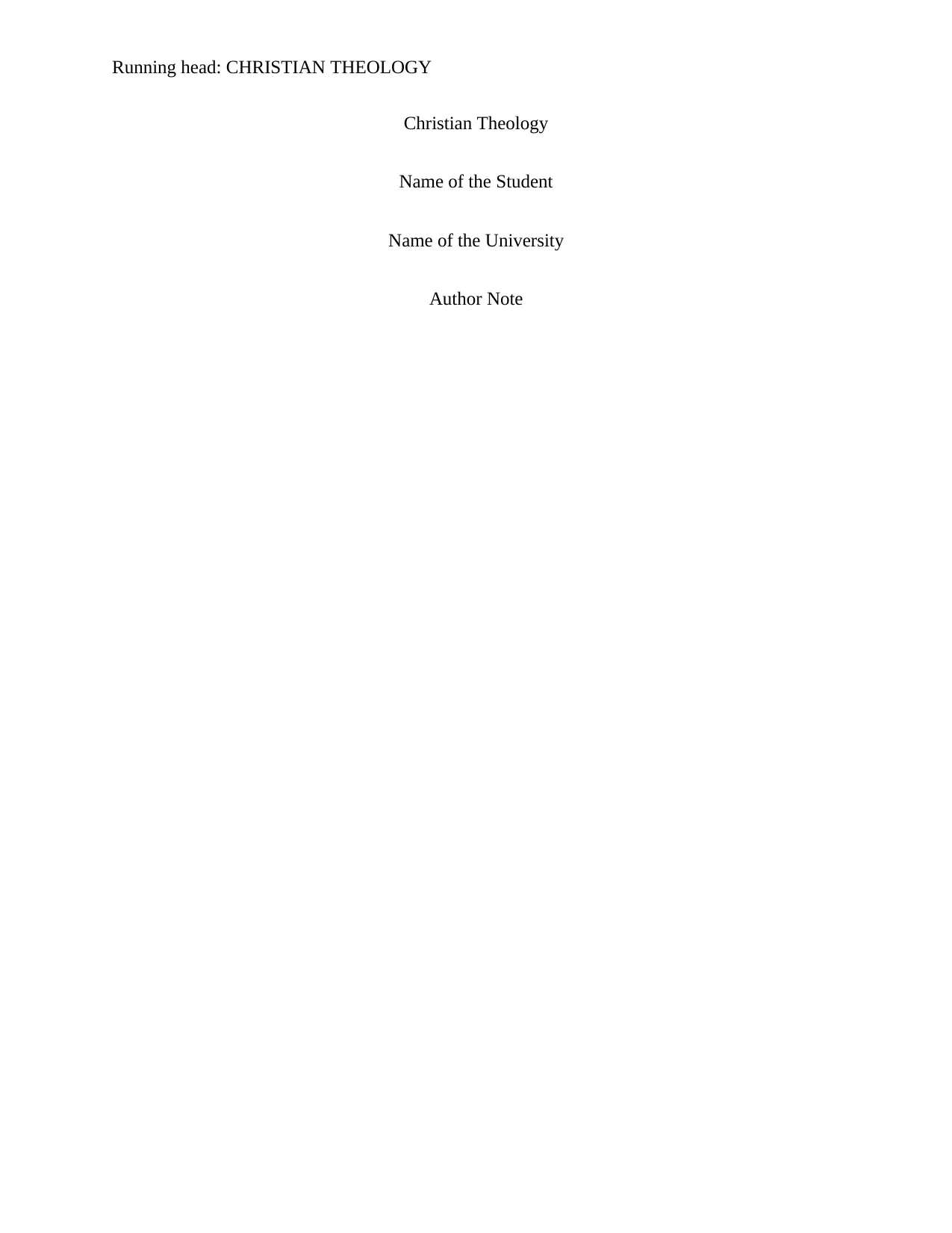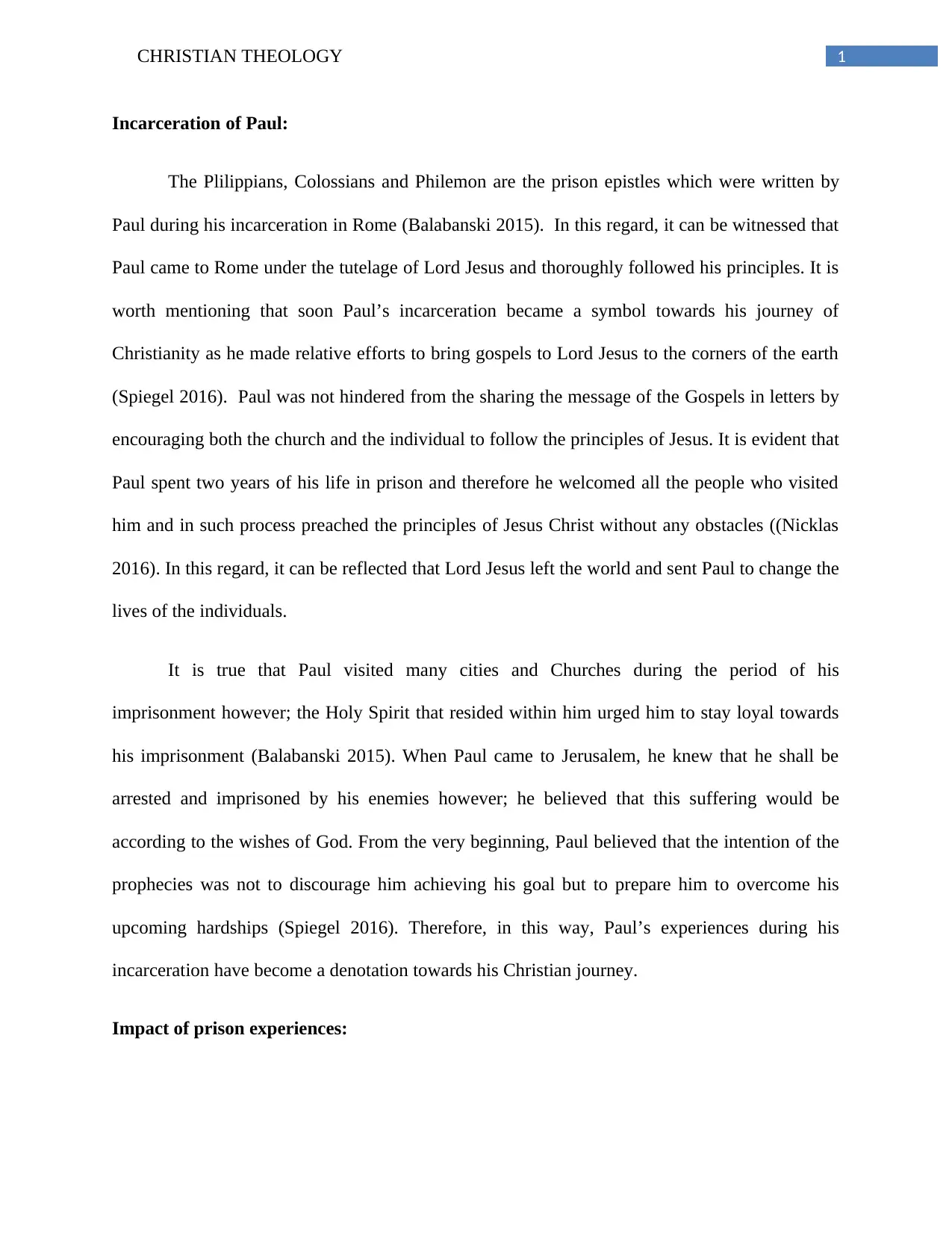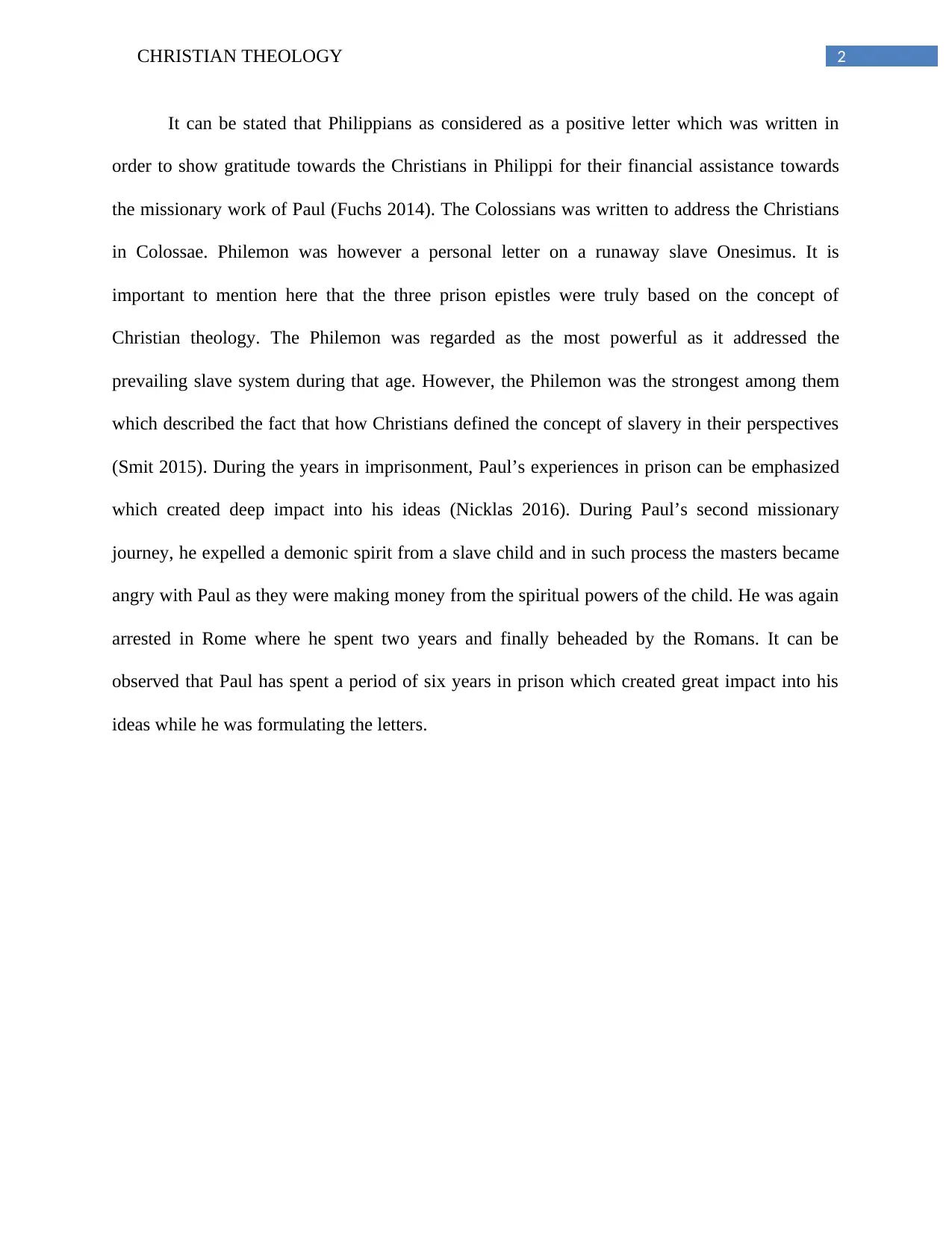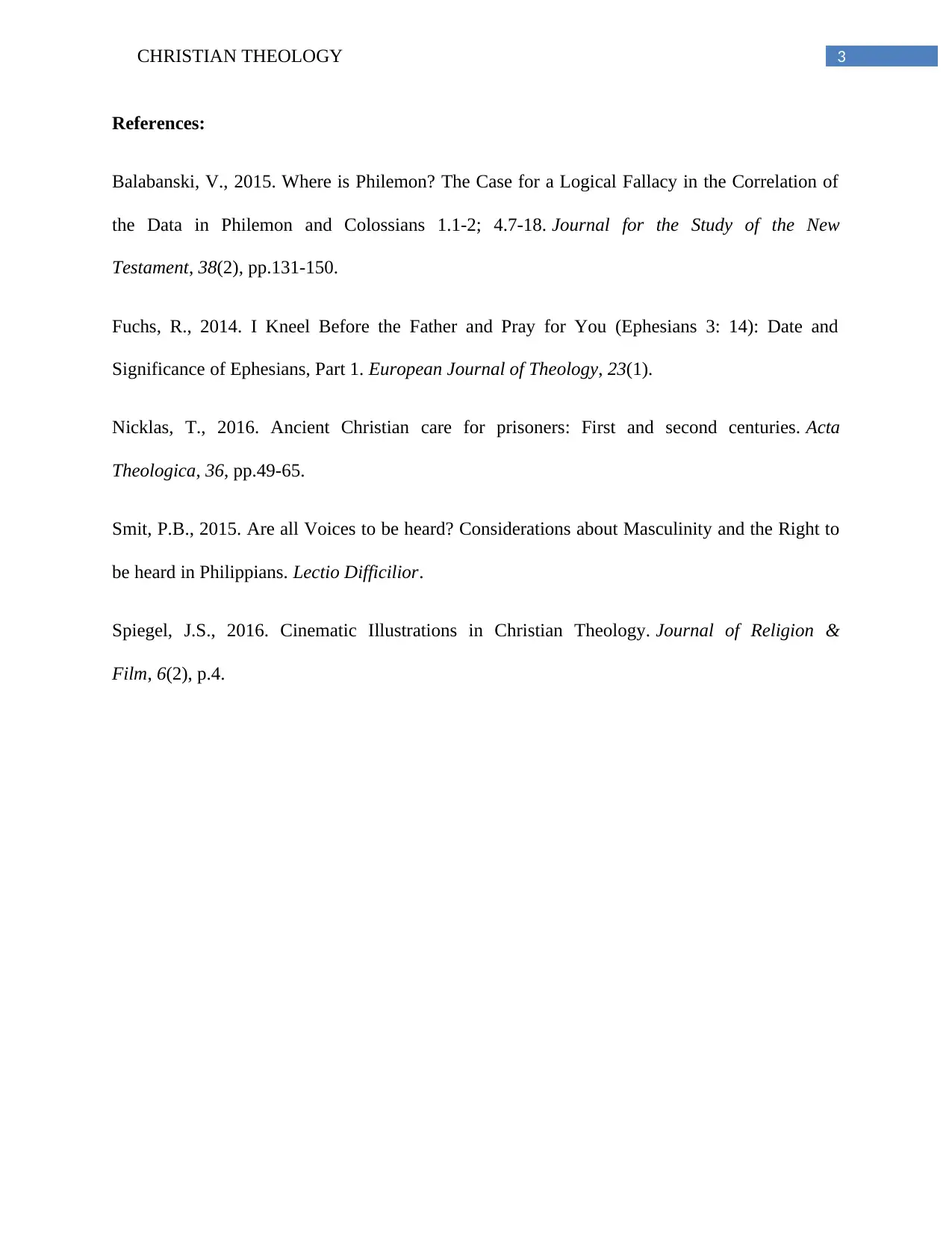Christian Theology: Paul's Incarceration, Impact & Prison Epistles
VerifiedAdded on 2023/06/14
|4
|762
|229
Essay
AI Summary
This essay explores Paul's incarceration and its impact on Christian theology, focusing on the prison epistles: Philippians, Colossians, and Philemon. It highlights how Paul's imprisonment in Rome became a symbol of his Christian journey, as he continued to spread the Gospel. The essay discusses the positive nature of Philippians, the addressing of issues in Colossians, and the powerful message of Philemon regarding slavery. It emphasizes the deep impact of Paul's prison experiences on his ideas and writings, referencing his missionary journeys and arrests. The essay concludes by citing relevant theological journals, providing a comprehensive view of Paul's influence during his imprisonment.
1 out of 4






![[object Object]](/_next/static/media/star-bottom.7253800d.svg)